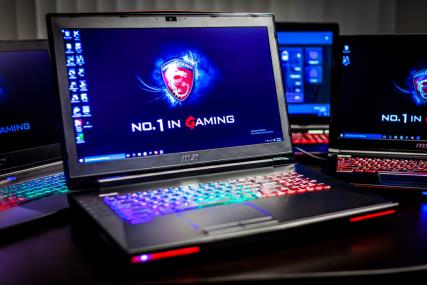Improving your laptop’s performance for gaming involves a few key steps. Start by cleaning up your system. Remove unnecessary programs and files that slow down your laptop. Make sure your laptop is free from malware by running antivirus scans. Updating your drivers, especially the GPU drivers, can significantly enhance gaming performance. You can also disable startup programs that consume resources in the background.
Another helpful step is adjusting the power settings to “High Performance” mode, which prioritizes performance over power-saving. Consider upgrading your hardware, such as adding more RAM or replacing your hard drive with an SSD, as these can improve game load times and overall system speed. Finally, ensure your laptop is well-ventilated to avoid overheating, which can throttle performance.
What are the best settings to optimize a laptop for gaming?
To optimize your laptop for gaming, consider the following settings:
- Power Settings: Set your laptop to “High Performance” mode to ensure it uses maximum power for gaming.
- Graphics Settings: Adjust your in-game graphics settings by lowering resolution, disabling unnecessary effects like shadows, and using medium or low settings to boost performance.
- Background Processes: Disable unnecessary background applications that consume system resources while gaming.
- Windows Settings: Turn off visual effects in Windows by going to “Performance Options” and selecting “Adjust for best performance.”
- Driver Updates: Keep your GPU drivers up to date for better compatibility and performance in new games.
- Cooling: Use external cooling pads or fans to prevent overheating, which can slow down your laptop.
- Game Mode: Enable Windows “Game Mode” to optimize your system’s resources specifically for gaming.
- Storage: Free up storage space on your drive, especially if your games are installed on the same drive as your operating system.
How do I boost FPS on my gaming laptop?
Boosting FPS (frames per second) on your gaming laptop can lead to smoother gameplay. First, ensure your drivers are up to date, especially your graphics card drivers, as they directly affect game performance. Next, lower in-game graphics settings like resolution, texture quality, and shadows. Close unnecessary background programs to free up system resources. Use Windows “Game Mode” to optimize the system for gaming.
If possible, switch to a wired internet connection for a more stable network, reducing lag that can impact FPS. Lastly, consider upgrading your hardware, such as adding more RAM or using an SSD, which can help improve FPS.
Does upgrading RAM improve gaming performance on a laptop?
Upgrading the RAM on your laptop can significantly improve gaming performance, particularly in games that require large amounts of memory to run smoothly. When you upgrade the RAM, your laptop gains the ability to handle more tasks simultaneously.
This is particularly useful in modern games that often have complex graphics and require substantial memory. If your laptop has insufficient RAM, it may struggle to load textures, process data, and maintain smooth performance during gaming. Adding more RAM can also reduce loading times and minimize instances of stuttering or lag during gameplay.
However, upgrading RAM alone won’t result in massive performance improvements in all cases. The benefits will be most noticeable if your system was previously underpowered in terms of memory. Coupled with a good GPU and processor, a RAM upgrade can make a big difference in overall gaming performance, especially for games with large open-world environments or heavy graphics.
FAQ’S
How can I reduce lag while gaming on my laptop?
To reduce lag while gaming on your laptop, make sure you close all unnecessary background applications. Switch to a wired internet connection if possible and adjust in-game settings for better performance.
What are the best ways to cool down a laptop during gaming?
Use an external cooling pad to help with airflow and reduce overheating. Elevate your laptop to improve air circulation, and ensure the internal fans are clean and functioning properly.
Can I overclock my laptop for better gaming performance?
Yes, you can overclock a laptop, but it should be done cautiously as it increases heat generation. Use software tools to safely overclock and monitor temperatures to avoid overheating.
Is it worth upgrading the GPU for gaming on a laptop?
Upgrading a laptop’s GPU is often difficult due to hardware limitations. However, if your laptop supports external GPUs, this can be a worthwhile investment to boost gaming performance.





